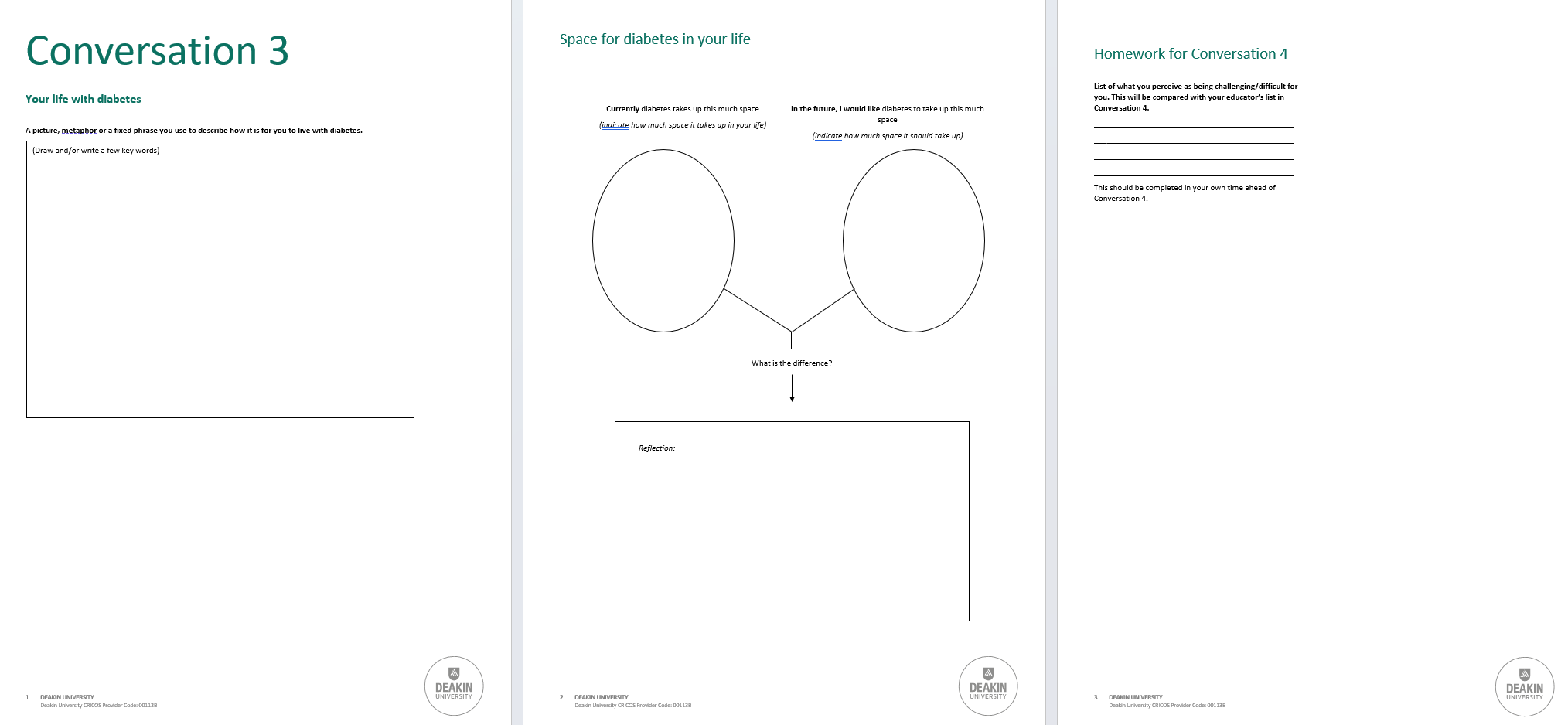Welcome to your GSD conversation #3
A metaphor for how it is for you to live with diabetes and space for diabetes in your life.
Sometimes words are just not enough and images, drawings, or photos allow us to express feelings, sensations, and emotions that feel faithful to our experience.
In Part 1 you will be asked to approach this task creatively - feel free to illustrate your emotions. This task has been designed to spark a productive conversation between you and your diabetes educator, in which you should be able to share your situation quickly, authentically, and truthfully.
Life can be overwhelming and sometimes it feels as if we don't have enough time or energy to manage all the decisions and problems we face. The Part 2 of this activity requires you to think about your current situation with diabetes. By completing this part you can see how much 'headspace' the situation/decision is taking up, and whether this is what you want.
In Part 3, we invite you to some some homework for your next conversation: brainstorm and list of what you perceive as being challenging/difficult for you. You can also review your answers in part 2 of this activity to help you to identify some challenges. This will be discussed with your educator to help you to narrow down the one challenge that you will be working on in the subsequent worksheets.
Please remember that there are no right or wrong answers - just answers that are true for you!
Please note that the activity design shown in the video is an old format. The downloadable activity (below) design will look slightly different.
Open your Downloads folder to find Conversation+3 .docs files, which should contain the following reflection sheet:
About GSD
From research, we know that the GSD method can help adults with diabetes to make changes to their personal circumstances, which enable them to better manage their diabetes.
In the GSD program diabetes educators communicate with their clients in a series of ‘conversations’ over the period of time. Each conversation has a guided structure that assists you to work through the activities alone or/ and together. Your diabetes educator will decide which conversations will be mots useful to you.
However each conversation is delivered as a collaboration between you and your diabetes educator. Below is a remined for the collaboration principles that underpin each conversation.
Invitation to collaborate
What should be the focus of our collaboration?
Something that is currently challenging or difficult for you in everyday life with diabetes.
What is your role and my role?
Both yours and my knowledge and experience are necessary.
Both of us must be active and utilise our time in the best possible way on aspects we find important
Part of the time we will be working separately- and part of the time we will work together
How should we work together?
It is OK that you and I perceive your situation differently
Disagreeing is OK
Having and showing emotions are OK
It is necessary that we know each other's opinions
We will use reflection sheets – but what can they be used for?
You can use them for reflection and for gaining insight into your situation – in peace and quiet
We can use them for gaining a general understanding of what is important in your situation
They can make it easier to talk about the more difficult aspects of diabetes
They can help you making decisions tailored to your needs and therefore possible to maintain
They help us to stay on course.
Privacy and Confidentiality
Information shared in the reflection sheets between you and your diabetes educator stays between you and your diabetes educator and is subject to the data sharing and privacy adopted by their practice.
Deakin University (the creator of this program) will not have access to your answers as you complete reflection sheets.
